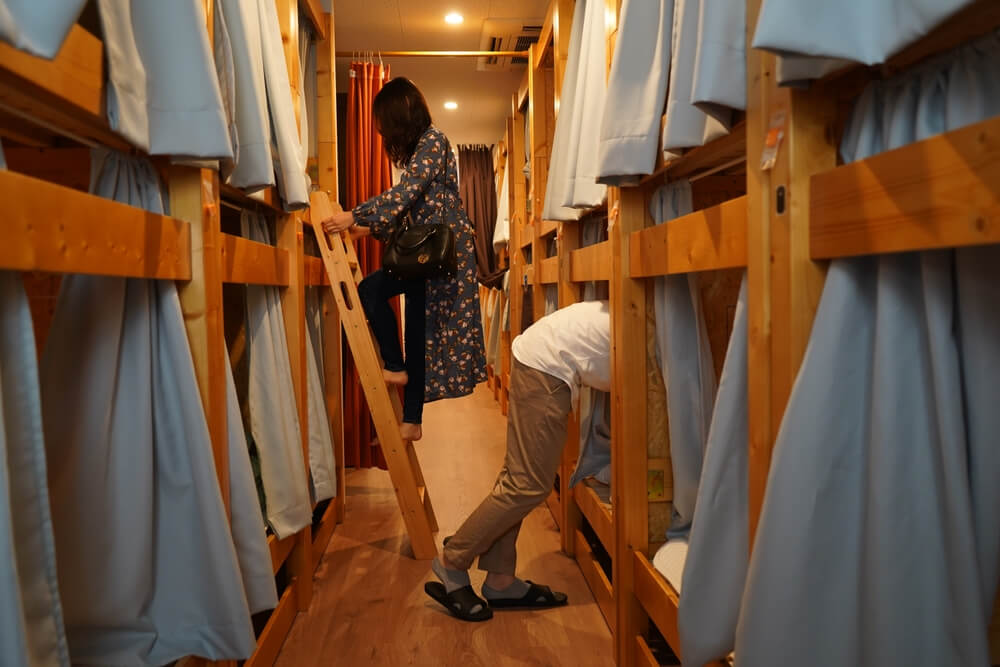What is a Hostel and How Does it Differ from Other Accommodations?

When planning a trip, especially for budget-conscious travelers, the term “hostel” often comes up as a viable accommodation option. But what exactly is a hostel? At its core, a hostel is a form of budget accommodation that offers affordable lodging in a social and communal environment. Unlike traditional hotels that provide private rooms, hostels typically feature dormitory-style settings where guests share sleeping quarters and common areas like kitchens and lounges.
The definition of a hostel extends beyond just being an economical place to stay; it embodies the spirit of community and cultural exchange. Hostels attract travelers from around the world who are eager to meet new people and share experiences. This unique aspect makes hostels an appealing choice for solo travelers or those looking to make connections during their journey.
Understanding the meaning of a hostel also involves recognizing its diverse range of facilities. Many hostels offer private rooms alongside shared accommodations, catering to different preferences while still maintaining affordability. Additionally, hostels often organize social events or tours that encourage interaction among guests, further enhancing their appeal as lively hubs for exploration and camaraderie.
In essence, choosing to stay at a hostel means embracing both budget-friendly lodging and the opportunity for meaningful interactions with fellow travelers from all corners of the globe.
The Unique Features of Hostels
When it comes to budget-friendly travel accommodations, hostels stand out for their unique features that cater to a wide range of travelers. One of the most notable aspects of hostels is their emphasis on communal living. This approach not only makes them affordable but also fosters a sense of community among guests from diverse backgrounds.
Hostel amenities often include shared spaces such as kitchens, lounges, and even co-working areas. These shared spaces in hostels are designed to encourage interaction and collaboration among guests, making it easy for travelers to meet new people and exchange stories or tips about local attractions. The opportunity to connect with fellow travelers is a distinctive element of hostel culture, creating an environment where friendships can blossom over a shared meal or an impromptu game night.
In addition to communal areas, many hostels offer unique amenities tailored to enhance the guest experience. These can range from organized tours and events that showcase local culture to facilities like bike rentals or yoga classes. By providing these options, hostels not only enrich the travel experience but also ensure that guests have everything they need within reach.
Overall, the unique features of hostels make them much more than just a place to sleep; they are vibrant hubs where adventure begins and lasting memories are made.
The Differences Between Hostels and Hotels
When planning a trip, one of the first decisions travelers face is choosing between staying in a hostel or a hotel. Understanding the differences between these two types of accommodations can help make an informed choice that suits your travel style and budget.
Cost Comparison: Generally, hostels are more budget-friendly than hotels. Hostels offer dormitory-style rooms where guests pay for individual beds, making them an economical option for solo travelers or those on tight budgets. Hotels typically charge per room, which can be more expensive but provides additional amenities and services.
Privacy Differences: Privacy is another key factor distinguishing hostels from hotels. In hostels, shared spaces such as bathrooms and lounges are common, fostering social interaction but offering less personal space. Hotels provide private rooms and bathrooms, catering to travelers who prioritize solitude and comfort during their stay.
Atmosphere in Hostels vs Hotels: The atmosphere also varies significantly between hostels and hotels. Hostels often have a lively, communal vibe with opportunities to meet fellow travelers through organized events or shared kitchens. This makes them ideal for those looking to socialize and connect with others on their journey. In contrast, hotels usually offer a quieter environment with professional service focused on privacy and relaxation.
The choice between a hostel and hotel depends on your preferences regarding cost, privacy needs, and desired atmosphere during your travels. Each offers unique benefits that cater to different types of travelers seeking diverse experiences around the world.
Comparing Hostels to Bed and Breakfasts (B&Bs)
When planning a trip, one of the key decisions travelers face is choosing the right type of accommodation. The debate between hostels and bed and breakfasts (B&Bs) often comes down to personal preferences and priorities. Understanding the differences can help you make an informed choice for your next adventure.
Hostels are typically known for their budget-friendly prices and communal atmosphere. They offer shared dormitory-style rooms, making them ideal for solo travelers or those looking to meet new people. Hostels often provide basic amenities but might not offer a high level of personalized service. However, many modern hostels have stepped up their game by offering private rooms and additional facilities such as free Wi-Fi, lounges, and organized activities.
In contrast, bed and breakfasts are renowned for their cozy ambiance and personalized service. Often family-run, B&Bs provide a more intimate experience with hosts who are eager to share local insights and tips with guests. Rooms at B&Bs are usually private, each with unique decor that reflects the character of the property.
When it comes to breakfast options, there is also a distinct difference between hostels vs bed and breakfasts. Hostels may offer basic breakfast items such as cereal or toast included in the stay or at an additional cost. Some hostels have communal kitchens where guests can prepare their own meals if they prefer more flexibility.
On the other hand, B&Bs pride themselves on serving hearty home-cooked breakfasts that are often included in the room rate. These meals can range from traditional full English breakfasts to gourmet spreads featuring local ingredients.
The Rise of Boutique Hostels
The concept of boutique hostels has been gaining traction, offering travelers a unique blend of comfort and community that sets them apart from traditional lodging options. But what exactly defines a boutique hostel? At its core, a boutique hostel combines the affordability and social atmosphere of a traditional hostel with the style, personalized service, and amenities typically found in luxury accommodations. This emerging trend is reshaping the way we think about budget travel.
Unlike conventional hostels that prioritize basic amenities for cost savings, luxury hostels focus on providing an elevated experience. They often feature artfully designed interiors, private rooms alongside dormitory options, high-quality bedding, and additional perks like on-site cafes or bars. These elements create an inviting environment where guests can enjoy both privacy and social interaction.
The rise of boutique hostels reflects a shift in traveler preferences towards more authentic experiences that foster connections among guests. In contrast to traditional hostels where interactions may be limited to shared dormitories or common areas with minimal decor, boutique hostels often organize community events or tours to encourage mingling among guests.
This evolution in the hospitality industry highlights how modern travelers seek not just a place to stay but an experience that enriches their journey. As the trend continues to grow, it challenges conventional distinctions between budget and luxury travel by offering something uniquely appealing: the charm of community living without sacrificing comfort.
How to Choose the Right Accommodation Type for Your Travel Needs
When planning a trip, selecting the right accommodation can significantly impact your travel experience. Understanding the differences between hostels, hotels, and bed and breakfasts (B&Bs) is crucial in making an informed decision that aligns with your needs and preferences.
Hostels are often favored by budget-conscious travelers or those seeking a social atmosphere. They typically offer dormitory-style rooms with shared facilities, which can be a great way to meet fellow travelers. One of the main pros of staying in a hostel is affordability; however, this often comes at the cost of privacy and comfort. If you’re someone who enjoys lively environments and doesn’t mind sharing spaces, a hostel could be an ideal choice.
Hotels provide more privacy and amenities compared to hostels. They range from budget-friendly options to luxurious stays with extensive services such as room service, gyms, and pools. Choosing a hotel might be best for travelers who prioritize comfort and convenience over cost-effectiveness. However, this choice might not offer the same level of social interaction that hostels do.
Bed and breakfasts (B&Bs) offer a unique blend of personal touch and homely ambiance. They are usually smaller establishments run by locals who provide breakfast as part of your stay. B&Bs can give you insights into local culture while offering more personalized service than larger hotels or hostels might provide.
Considering these travel accommodation tips will help you weigh the pros and cons effectively: think about your budget constraints, desired level of privacy, location preferences, amenities needed, and whether you seek social engagement during your stay. By evaluating these factors carefully when choosing between hostel or hotel or B&B options, you’ll ensure that your accommodation enhances rather than detracts from your travel adventure.
Embracing the Hostel Experience as Part of Your Journey
In conclusion, embracing the hostel experience can significantly enrich your travel journey. Hostels offer more than just affordable accommodation; they provide a unique opportunity to connect with fellow travelers from around the world, fostering a sense of community and shared adventure. Staying in hostels encourages cultural exchange and often leads to forming lasting friendships. Moreover, many hostels organize activities and tours that allow you to explore your destination in a more immersive way.
The communal environment of hostels can also enhance your adaptability and open-mindedness, as you learn to navigate shared spaces and diverse perspectives. For solo travelers, hostels are particularly beneficial as they offer a safe space to meet people while maintaining the freedom of independent exploration.
Ultimately, by choosing to stay in hostels during your travels, you not only save money but also gain invaluable experiences that contribute significantly to personal growth and global understanding. Embracing this form of accommodation is about more than just where you sleep; it’s about enhancing every aspect of your journey through meaningful connections and unforgettable experiences.

